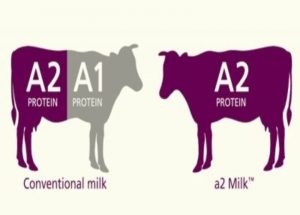Short-Term Memory Loss In Teens
Short-term memory loss in teens has a variety of causes. In subcortical areas called the temporal lobe and hippocampus. Deep inside the brain lies the place where true memory is stored. Actual memory loss resulting from damage to these structures is usually not the reason for teenage memory trouble. Short-term memory loss in young adults is best described by first understanding the multiple underlying short-term memory mechanisms as these circuits stay susceptible during adolescence.
What Is Short-Term Memory Loss?
Short-term memory is the ability to keep little information in an active condition for a short time. These include activities such as learning, understanding, and reasoning. Short-term memory helps the brain process information to select, initiate and terminate tasks. These features include tasks such as storing, encoding and retrieving all information. If your teen can not use this memory, he may have a short-term memory loss.
Causes Of Short Term Memory Loss In Teens
Several factors could lead to short-term memory loss in teens. Here are some of the factors you can look for:
1. Anxiety and stress:
He won’t be able to concentrate if your teen is anxious or stressed. It will distract and over-stimulate his mind. From his short-term memory, he will not be able to remember things.
2. Side effects of drugs:
Medicines such as painkillers or sedatives could cause your teen to lose short-term memory. Different counter medications, as well as prescription medications, can hamper the memory of your teen.
3. Smoking:
Regular smoking reduces the oxygen reaching the brain. If your teen smokes regularly, his short-term memory will find it difficult to retain.
4. Sleeplessness:
The amount and quality of the sleep of your teen are very essential. Insufficient sleep may result in a loss of short-term memory.
5. Nutrition Deficiency:
Good nutrition is essential for adequate brain function, including high-quality proteins and fats. Vitamin B1 and B12 deficiencies can specifically influence memory.
6. Stroke:
A stroke happens when blood supply to the brain is stopped because a blood vessel is blocked into the brain or a vessel is leaked into the brain. Strokes often trigger memory loss in the short term. An individual who has had a stroke may have vivid memories of childhood occurrences, but they may not be able to remember what they had for dinner.
7. Head injury
For instance, a serious hit to the head— from a fall or automobile accident— can damage the brain and cause short-and long-term memory loss. Over time, memory can gradually enhance.
8. Depression:
Common signs of depression include stifling sorrow, lack of drive, and diminishing enjoyment in things that you normally appreciate. Forgetfulness can also be a sign of or a result of depression.
9.Underactive Thyroid:
Memory can be affected by a faltering thyroid (as well as disturbing sleep and causing depression, both causing forgetfulness). If your thyroid is doing its work correctly, an easy blood test can say.
Other Causes:
- If the thyroid gland of your teen can not produce enough hormones, his short-term memory may be adversely affected.
- Your teen may have bleeding in the brain or subarachnoid hemorrhage.
- They might have gotten into the alcohol abuse habit. Long-term alcohol abuse may also result in memory loss in the short term.
- Your teen might be used for alcohol abuse. Long-term alcohol abuse may also result in memory loss in the short term.
- Your teen may suffer from temporary global amnesia where the blood flow to a certain part of your brain can be problematic. It can lead to short-term memory loss in sudden and irregular episodes.
- Your teen may have psychogenic amnesia. Excessive stress or trauma can block your teen’s memories. It may lead to short-term memory loss if your teen can not remember significant information.
Treatment Of Short-Term Memory Loss In Teens:
Short-term memory loss therapy will rely mainly on the cause.
- If your teen has short-term memory loss owing to the side effects of medication, your doctor may need to modify the drugs.
- Memory loss is due to nutrient deficiency, your teen’s doctor may suggest vitamin supplements.
- If memory loss is due to depression, therapy can be the way to go.
Carefully read the signs and watch out for any change in the behavior of your teen that points to a memory lapse. Schedule your doctor’s appointment to prevent future complications.
Also Read: How To Deal With Teen’s Drug Problem













